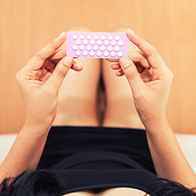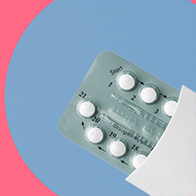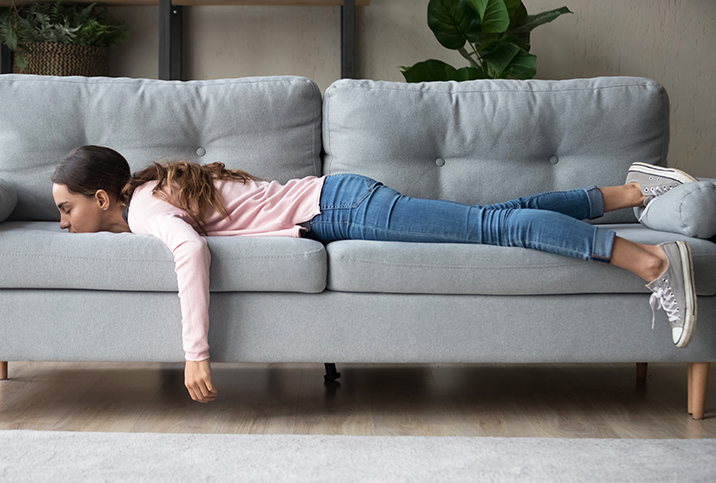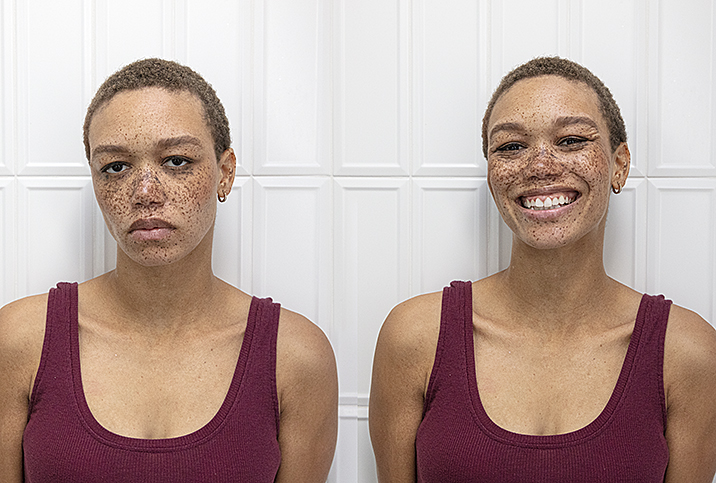Is Your Birth Control Making You Anxious?

Like many people, Emilie Lavinia started taking hormonal birth control in her late teens. But while the pill helped to assuage her fears of an unplanned pregnancy, she speculates it caused a general anxiety that lingered for years.
"I think the fear of getting pregnant at a time when you really don't want to be pregnant makes young women so anxious anyway, but it was fairly likely that my intense anxiety had something to do with the pill I was on," she said.
Most people using hormonal birth control—including the pill, patch, ring or progestin IUDs—report few side effects, if any. In fact, many people find it helps with issues like heavy periods and hormonal acne, and can improve mental health and reduce symptoms of premenstrual and period-related depression and anxiety.
But for a small percentage of people, like Lavinia, hormonal contraceptives may cause or exacerbate mental health issues rather than relieving them.
If you're wondering if your hormonal birth control is impacting your mental health, here's what you need to know.
How does hormonal birth control affect the psyche?
Reproductive hormones can significantly impact mood, but the effects vary from person to person. You might feel like an intensely sensitive, irritable zombie vacillating between fantasies of an all-you-can-eat dessert buffet and a murderous rampage on the day before your period, while your friend just has an unusually powerful hankering for chocolate.
"It's very individual, but some women may notice they feel happier and more energetic during the first half of their menstrual cycle, the follicular phase, and less so during the luteal phase as menstruation approaches," said Nancy Shannon, M.D., Ph.D., senior medical director at Nurx. "And, of course, many feel moody right before and during their periods."
Likewise, the effect of hormonal birth control on a person's mental health can vary considerably, too.
Doctors and scientists have yet to reach a consensus on the link between hormonal contraceptives and the psyche.
"Every person's biological makeup is different. So, each person can respond differently to hormonal birth control," said Sanam Hafeez, Psy.D., an NYC neuropsychologist and faculty member at Columbia University. "Hormonal contraceptives work to stop the body's natural sex hormones from rising and falling as they naturally would, which prevents the body from ovulating. This can affect how a woman feels emotionally around and during her period."
According to Hafeez, there is no clear research indicating exactly how hormonal contraceptives affect the brain. Doctors and scientists have yet to reach a consensus on the link between hormonal contraceptives and the psyche. Many experts say there is none, although hormonal contraceptives may either mask or exacerbate underlying conditions.
"Data does not universally support that combined oral contraceptives affect mood symptoms," said Sara Twogood, M.D., a board-certified OB-GYN in Los Angeles and cofounder of Female Health Education. "But it is hard to study these types of correlations, and the data is not robust."
"Some studies show that some females do have an increase in mood symptoms, such as anxiety and depression-like symptoms, while others have an improvement in mood. One study showed that people on birth control pills have more 'mind wandering,' which is also a symptom associated with depression and anxiety," Twogood continued. "On the other hand, birth control pills are often used for the treatment of mood symptoms for women with PMS and PMDD, and can be quite effective."
When adverse psychiatric side effects do occur, Hafeez said, low estrogen may be to blame.
"It is possible that some women react differently to increased or decreased levels of estrogen, which is why some report side effects of depression and mood swings—especially in the first few months as the body becomes acclimated," Hafeez said.
Since estrogen affects the sleep-wake cycle, the disruption in natural hormone release and estrogen levels may adversely impact circadian rhythms, as well, Hafeez said. This could negatively affect digestion, hormone levels and mood.
Few reliable studies exist examining the link between hormonal contraceptives and depression, but a 2016 University of Copenhagen study is one of the most oft-cited.
In it, researchers examined more than 1 million Danish people ages 15 to 34 between 2000 and 2013, excluding people with preexisting psychiatric conditions, those who could not take hormones due to medical concerns, and those who would be prescribed hormonal contraceptives for other reasons.
They also excluded pregnant females and those six months postpartum, as well as recent immigrants to avoid accidentally including people with unrecorded medical issues.
The researchers concluded that people using hormonal birth control were more likely to receive a depression diagnosis or their first antidepressant prescription compared to those not taking it. But the margin was small. Specifically, an average of 2.2 per 100 people using hormonal birth control developed depression versus 1.7 per 100 people who were not using hormonal contraceptives. Because of these ratios, the numbers appear statistically insignificant.
Notably, a review of 30 years of studies, published in 2016 in the European Journal of Contraceptive and Reproductive Care, found most hormonal contraceptive users—including those using the pill, patch or ring—reported none or a positive impact on their mood while taking the medication.
What is most likely to cause anxiety?
According to the University of Copenhagen study, all forms of hormonal birth control were associated with some increased risk of depression, however small. Progesterone-only forms posed a higher risk than combination methods.
A 2018 review published in PLOS One also concluded people using IUDs containing the hormone levonorgestrel were at higher risk for anxiety.
Lindsay Israel, M.D., a board-certified psychiatrist and chief medical officer at Success TMS, echoed researchers, noting progesterone-only methods may be more likely to trigger depression symptoms than combination methods.
"Combination pills taken orally with both estrogen and progesterone can help better than long-acting injectable or Depo shots of progesterone-only or birth control implants that release hormones," Israel said.
'When deciding which type of birth control is best for your mental well-being, it is essential to be aware of the hormone levels in each contraceptive method.'
But some research indicates combination oral contraceptives can have adverse effects, too. A study published in the journal AOGS found about 4 percent to 10 percent of people reported mood problems while taking the combination pill, most of which occurred during the placebo week or a week with a withdrawal from hormones. Therefore, the combination pill, especially when taken continuously without a placebo week, could actually improve symptoms of depression and anxiety.
"When deciding which type of birth control is best for your mental well-being, it is essential to be aware of the hormone levels in each contraceptive method," Hafeez said. "Oral contraceptives that include placebo pills are more likely to influence a person's mental health due to the loss of hormones during that week. Although the hormones remain steady while taking the pills, the sudden loss of hormones can create mood swings."
Hormonal contraceptives and PMDD
While some people, like Lavinia, experience increased anxiety from hormonal contraceptives, others find the combination pill to be a godsend for mitigating premenstrual dysphoric disorder (PMDD), a mood disorder triggered by hormonal changes in the menstrual cycle.
"Estrogen is known to increase serotonin levels and increase the number of serotonin receptors in the brain," Israel said. "Therefore, when estrogen levels fluctuate, as they do during the normal menstrual cycle, this causes fluctuations in serotonin levels, which in many women who have a higher sensitivity to these shifts can cause symptoms of PMDD. This is why taking either oral contraceptive pills (synthetic/exogenous hormones) or SSRIs (oral antidepressants) can help treat PMDD symptoms."
Currently, YAZ is the only birth control option officially approved by the FDA to treat PMDD. However, according to Israel, all combination oral contraceptives are widely accepted as potentially useful treatments for the disorder.
Options for people with mental health concerns
The CDC and the World Health Organization (WHO) have approved hormonal contraceptives for use in people with known mood disorders, Shannon said. But birth control, like any medication, is not one-size-fits-all. For those living with anxiety or depression, combination birth control methods that provide a consistent, low dose of hormones may be best.
"Hormones are complex and individual, and if a patient feels that their birth control is negatively affecting their mood, our medical team will always work with them to find a method with a different mix of hormones that might work better for them," Shannon said.
Most doctors recommend patients stick with a method for at least three months to allow the body to adjust to the change in hormones. Side effects typically dissipate after that.
If your symptoms continue, talk to your doctor about changing your dose or medication.




















